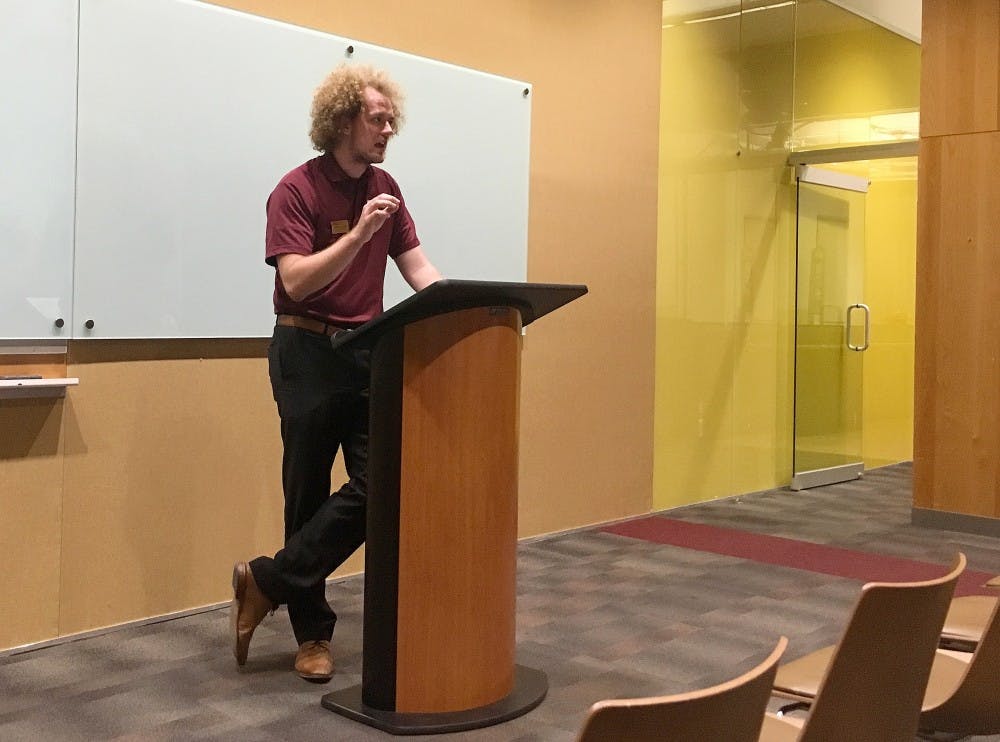A flat rate on tuition would be great.
The price of attending college goes up every year, making it harder and harder for students to afford higher education, which is already extremely expensive.
An in-state tuition freeze, however, is not the way to go about making college more affordable.
A bill such as S.B. 1061, which was voted down by the legislature last Thursday, would have guaranteed a flat four year tuition rate but only for resident undergraduate students.
This sort of tuition freeze may look good on paper, but it would likely cause the university to raise tuition for out-of-state, graduate and international students in order to compensate for the loss of money they would have received from the in-state students.
As with most state universities, out-of-state and international students pay an increased tuition rate.
In-state students are currently paying $10,640 for the 2016-2017 year. Out-of-state students attending ASU are currently paying $26,470, which is more than twice as much.
Money doesn’t grow on trees.
If out-of-state and international students have to pay extra, then many of them may not be able to afford to attend ASU.
“They would face an increased risk of the potential burden of having to pay a tremendous amount more due to the potential cap placed on the tuition itself,” Jackson Dangremond, Undergraduate Student Government (USG) Downtown president at ASU, said.
Nearly one-fourth of students at ASU are out-of-state. If a good amount of those students had to leave because they were not able to pay more for tuition, the school would lose even more money.
On top of all that, they would probably have to start increasing fees which would make the overall price of attending the university even higher for all students.
ASU is also currently maintaining a tuition increase rate of 1.5 percent for in-state students whereas the tuition increase for NAU and UA are 3.9 percent and 3.2 percent respectively.
Even though NAU and UA are on a program that is similar to what would have been implemented if S.B. 1061 would have passed, ASU is still maintaining a lower tuition increase rate.
NAU and UA have a pledge program, which guarantees the same tuition for all four years. Despite this, their tuition increases are still higher than ASU’s and that flat tuition rate does not apply to fees.
A tuition freeze for in-state students at ASU sounds great at first. However, such a tuition freeze would end up hurting ASU students and only act as a shot term fix for the ever-increasing tuition.
“It’s not the long term solution, the long term solution is investment from the state,” Jimmy Arwood, USGD vice president of policy at ASU, said.
Investment from the state would seem to be the best solution to solve the issue of rising tuition at ASU.
I’m not saying that I’m against a flat tuition rate.
I think it would be great if our tuition didn’t rise during our four years here at ASU. However, if there is to be a tuition rate freeze, it needs to include all students. It also needs to be compensated for with more investment from the state so that the university won’t lose money.
If S.B. 1016 were to have passed, it would have been disastrous for students at ASU. We need to do something about the high rates of tuition but having a tuition freeze would do more harm than good.
Reach the columnist at morganbwillis@gmail.com or follow @Morganwillis37 on Twitter.
Editor’s note: The opinions presented in this column are the author’s and do not imply any endorsement from The State Press or its editors.
Want to join the conversation? Send an email to opiniondesk.statepress@gmail.com. Keep letters under 300 words and be sure to include your university affiliation. Anonymity will not be granted.
Like The State Press on Facebook and follow @statepress on Twitter.




